EV vs Petrol/Diesel Vehicles has become a hot topic with rising fuel prices and growing environmental concerns. Government support, subsidies and technological advancements have pushed EVs into the mainstream.But are EVs really cheaper and better than Petrol/Diesel cars in terms of affordability and convenience.
1.Initial Cost Comparison
When comparing EV vs Petrol/Diesel vehicle,the initial purchase price of EVs is still on the higher side due to costly battery technology. for example an electric SUV can cost significantly more than its petrol counterpart.On the other hand, petrol and diesel cars especially entry level ones are far more affordable, making them accessible for budget conscious buyers.
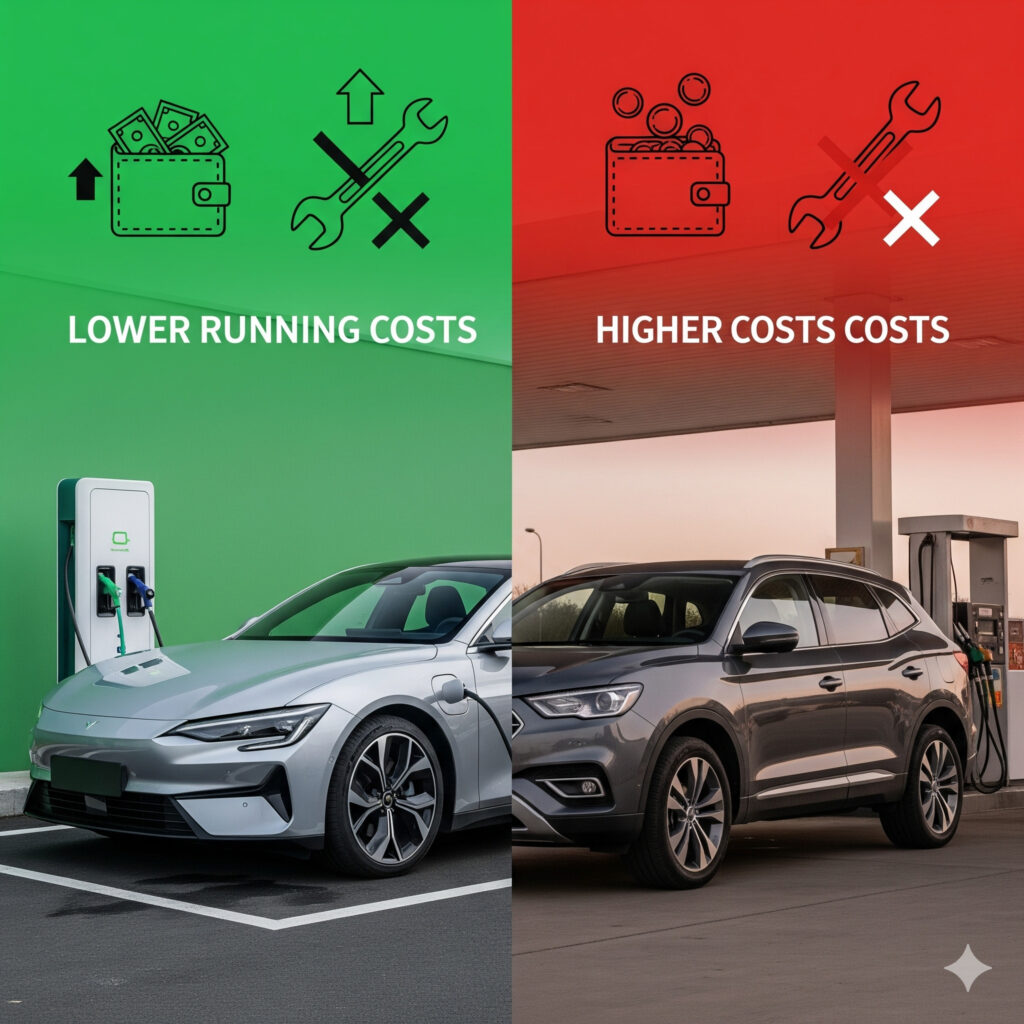
👉 Verdict : Petrol/Diesel cars are cheaper upfront, while EVs require a higher initial investment.
2.Running Cost
EVs on average, charging an EV costs only ₹120-₹130 for 100 km of driving. Petrol/Diesel cars running the same distance can cost anywhere between ₹600-₹650 depending on fuel prices.
👉 Clear winner : EVs (running costs are nearly 5x cheaper).
3.Government Subsidies & Tax Benefits
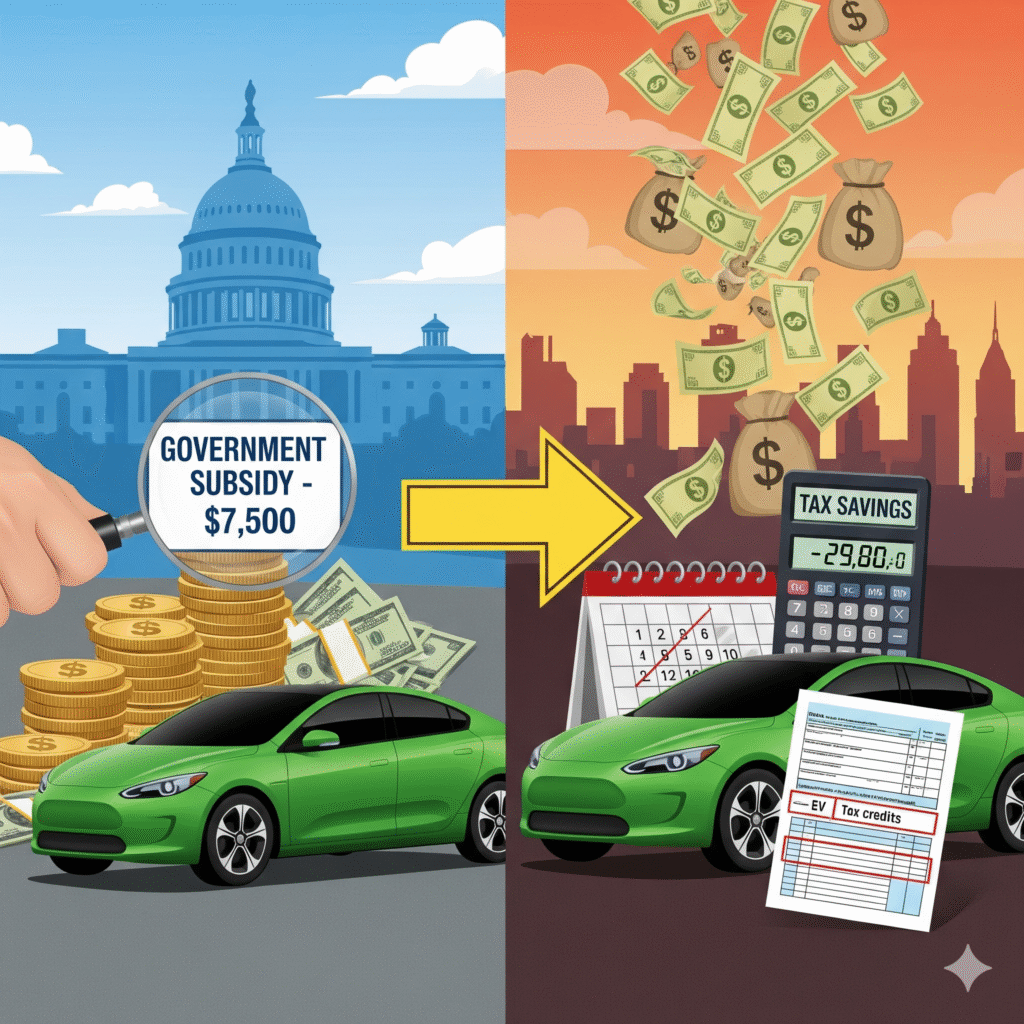
Government support heavily influences EV vs Petrol/Diesel Vehicle .EV buyers enjoy benefits such as india’s FAME 2 scheme and state level subsidies in delhi, maharashtra, and gujrat, which significantly reduce costs petrol and diesel cars don’t receive any such advantages.
👉Verdict : EVs benefit from strong government support.
4.Maintenance Comparison
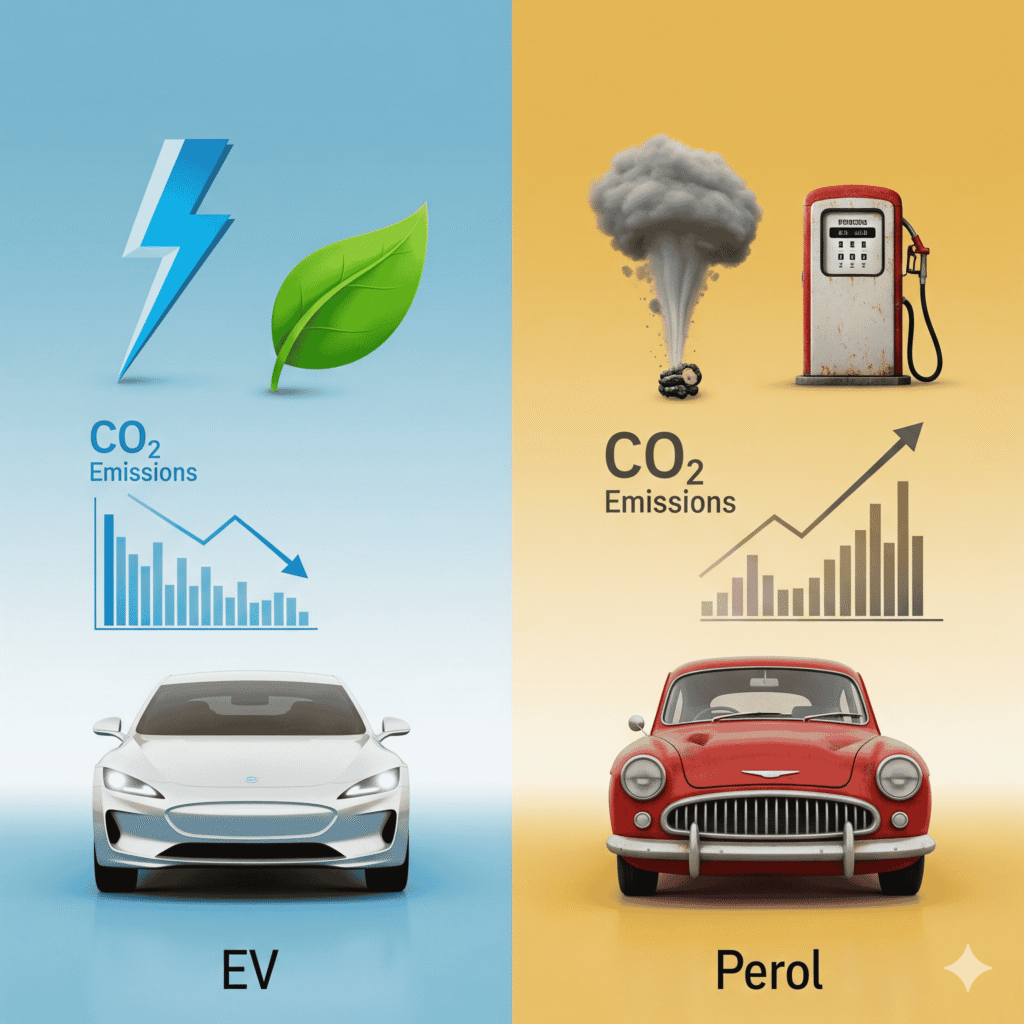
EVs
EVs have fewer moving parts (no engine, no clutch, no gearbox).
Only the battery and electric motor require periodic care.
Maintenance costs are 30-40% lower compared to Petrol/Diesel vehicles.
Petrol/Diesel Vehicle
Require oil changes, filter replacement, clutch maintenance and engine servicing.
Diesel engines, in particular, involve higher maintenance expenses.
👉Verdict : EVs are the clear winner in maintenance costs.
5.Performance Comparison
Vehicle Type Mileage (Average) Range (Approx)
- Petrol 17-19 kmpl Up to 75,000 km
- Diesel 20-24 kmpl Up to 1,05,000 km
- Electric (MR) 10-14 kmpl eq. Up to 325 km per charge
- Electric (LR) 11-14 kmpl eq. Up to 465 km per charge
EVs offer instant torque and smoother acceleration.
Petrol vehicles still lead in refueling convenience and highway range.
Diesel cars provide better mileage for long distance travel.
👉Verdict : EVs are better for city rides and daily commuting, while petrol/diesel may suit long-distance users better.
6.Charging Infrastructure vs Fuel Stations
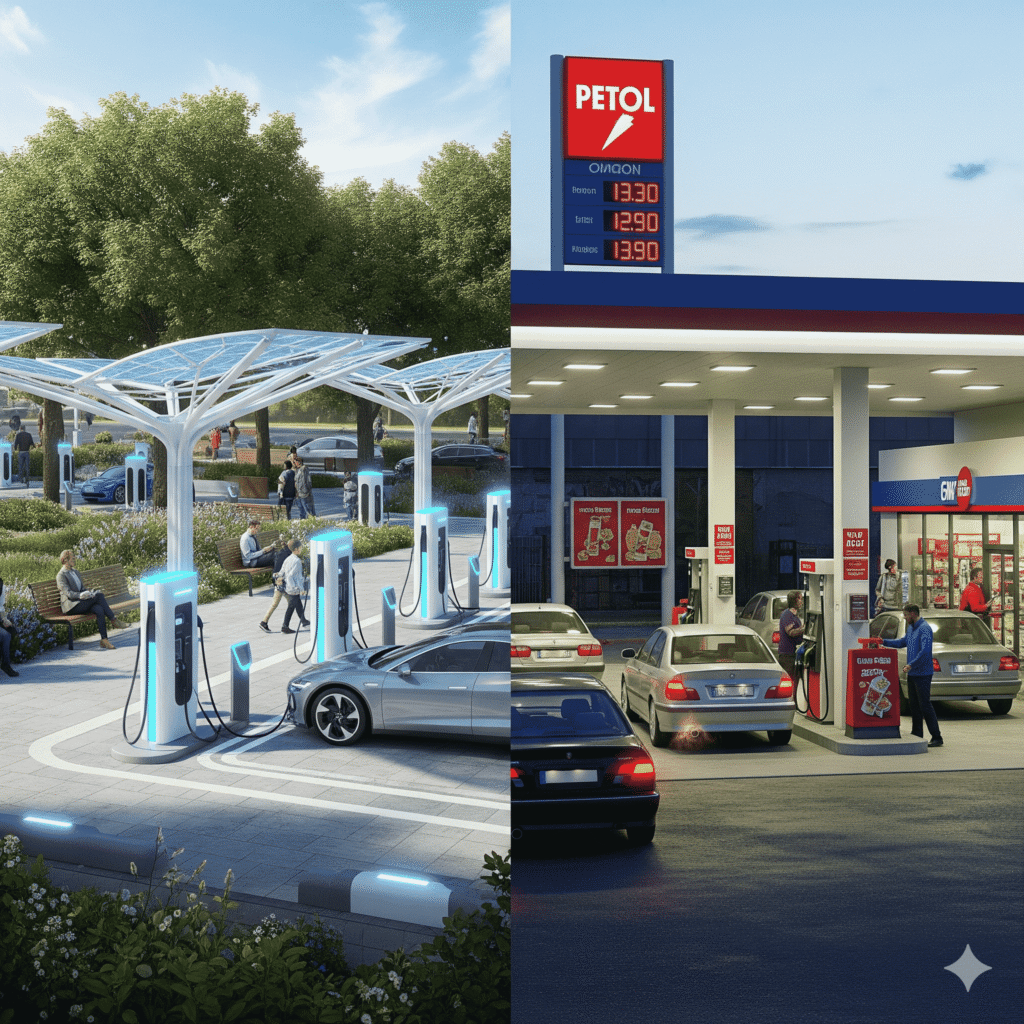
When analyzing infrastructure in EV vs Petrol/Diesel vehicles,Petrol pumps are available everywhere making refueling quick and convenient.EV charging stations while growing are still limited and can cause range anxiety for long tips. Urban areas are improving rapidly,but rural coverage is still weak.
7.Environment Impact
The environment is a critical part of EV vs Petrol/Diesel Vehicle.EVs produce zero tailpipe emission, making them much cleaner and eco-friendly.Diesel cars emit harmful particulars and nitrogen oxides, while petrol cars release significant carbon dioxide . however, electricity generation for EVs can still cause indirect emissions depending on the energy source.
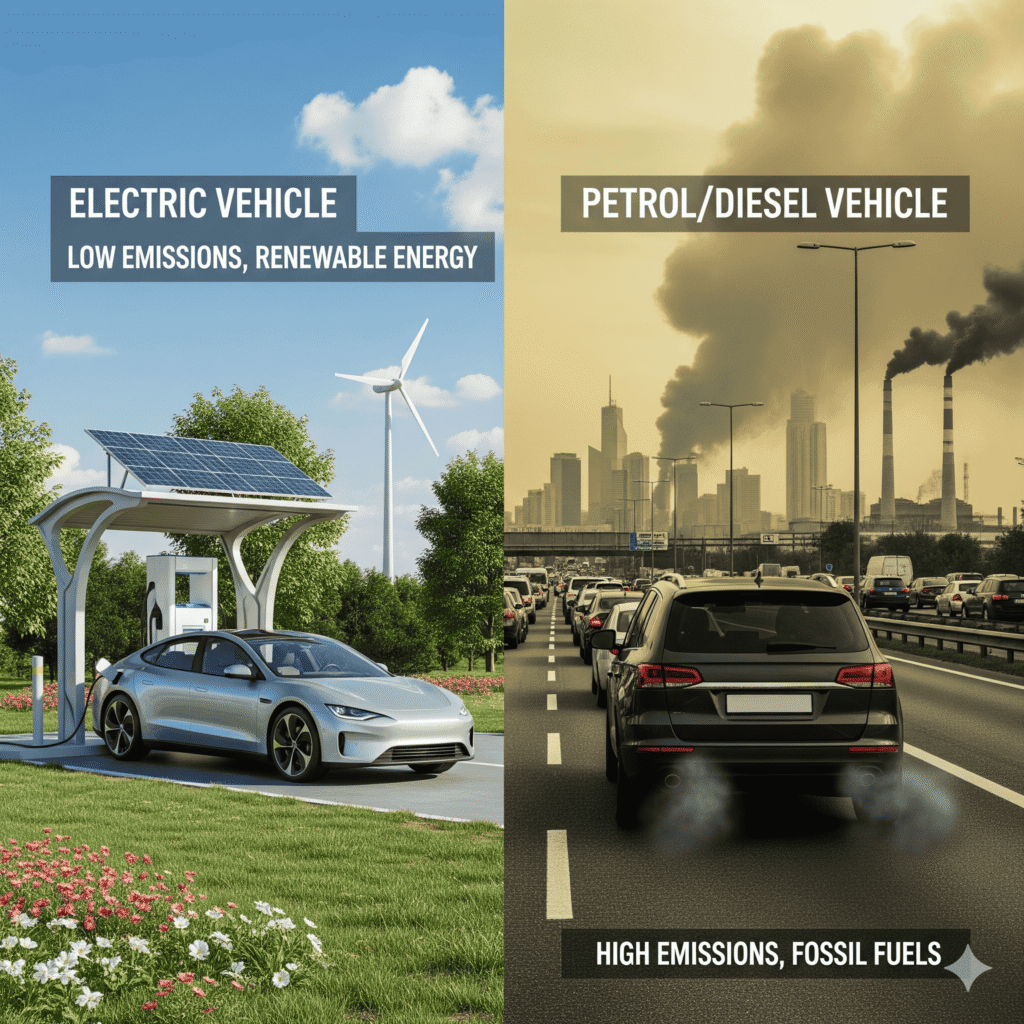
👉 Winner : EVs (environment-friendly and future-ready)
8.Resale Value
Currently, Petrol and diesel cars hold their resale value better.EV resale value is uncertain because battery degradation reduces performance over time and replacement costs are high. However as technology improves,EV resale may become more stable.
👉Verdict : Petrol/Diesel Vehicles have stronger resale value for now.
9.Performance & Driving Experience
Performance is another area where EV vs Petrol/Diesel Vehicle differ. EVs deliver instant torque, smoother rides, and quieter operation. petrol cars are fun to drive with strong acceleration,while diesel cars are great for torque and long-distance cruising. still, Evs are often considered more advanced and futuristic.
10.Charging/Refueling Convenience
Petrol/Diesel Cars: Easily refueled in 2-3 minutes at any fuel station.
EVs: Charging infrastructure is growing but still limited. Fast Charging can take 30-60 minutes, while home charging may take several hours.
👉Winner : Petrol/Diesel in convenience, EVs improving gradually.
11.Long-Term Ownership Cost
Considering fuel, maintenance and subsidies, EVs become cheaper over 5-7 years.
Petrol/Diesel cars cost more in the long run due to rising fuel prices and frequent servicing.
12.Long-Term Savings
EVs Cost more upfront, the lower running and maintenance costs lead to significant savings over 5-7 years. petrol/diesel vehicles may appear cheaper initially,but rising fuel prices and higher maintenance eat into long-term budgets.
👉Verdict : EVs save more money in the long run.
13. Future Readiness
With the government pushing for electrification and automakers investing in EV tech, EVs represent the future of mobility.
Petrol/Diesel vehicle may face restrictions in the coming decade due to emission norms.
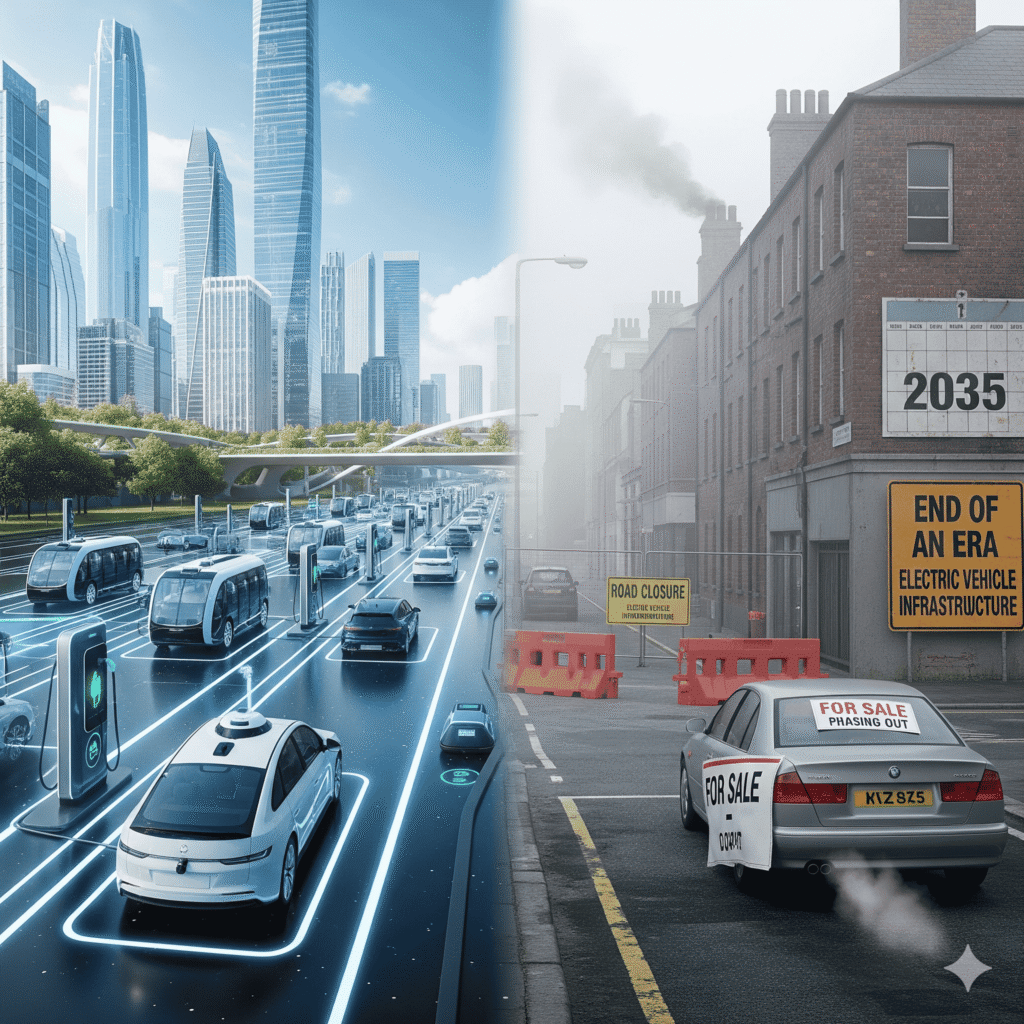
Conclusion
The choice between EV vs Petrol/Diesel vehicles depends on your needs. if you want lower initial cost, quick refueling and strong resale value, petrol/diesel cars are still a safe bet. but if you are looking for lower running costs, cheaper maintenance, eco friendly driving and future readiness, EVs are the smarter choice.
👉 As we move into 2025-26 and beyond, EVs will continue to become more affordable and practical. The real question is Are you ready to make the switch.
FAQs
Q1.Are EVs cheaper than petrol cars in india?
👉EVs have higher upfront costs but are much cheaper to run and maintain in the long term.
Q2.How much does it cost to charge an EV for 100km?
👉It usually costs only ₹120-130, Compared to ₹600+ for Petrol Cars.
Q3.Do EVs require frequent servicing?
👉No, EVs have fewer moving parts and require up to 40% less maintenance than petrol/diesel vehicles.
Q4.Are subsidies available for EV buyers in India?
👉Yes, under FAME 2 and state policies, buyers can get subsidies and tax benefits.
Q5.Which is better for long-distance travel EV or Petrol/Diesel?
👉Petrol/Diesel vehicles are still more convenient for long-distance travel due to quick refueling and higher range.
Q6.What is the future of EVs in India?
👉Government support and increasing infrastructure, EVs are set to dominate the indian automobile market in the next decade
Also read:
- Tata motors – https://www.tatamotors.com
- Mahindra Electric –https://www.mahindraelectricautomobile.com
- Maruti suzuki –https://www.marutisuzuki.com
- MG Motor India –https://www.mgmotor.com
- Hyundai India –https://www.hyundai.com/in/en
